commentary Commentary
Commentary: Donald Trump once again plays a favourite role, the victim of Big Tech
Facebook’s new Oversight Board’s decision to extend the ban on former President Trump’s account gives him the attention he craves and Facebook the scrutiny it sought to avoid, says NTU’s Mark Cenite.
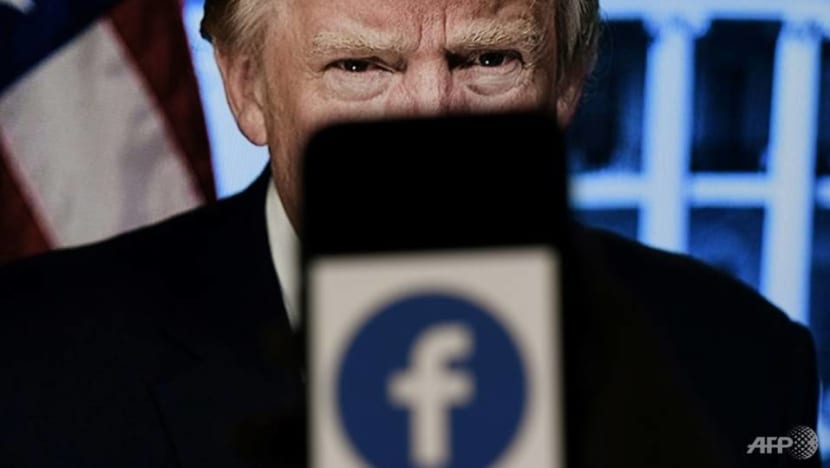
The independent oversight board created by Facebook has asked the social media giant to review its decision to ban the former US leader' from its platform. (Photo: AFP/Olivier DOULIERY)
SINGAPORE: Faced with a decision on whether to permanently ban former President Donald Trump’s account, Facebook referred the case to its new Oversight Board.
Yet, the board scolded the company for seeking to “avoid its responsibilities” and returned the decision to Facebook on Wednesday (May 5).
The board said Facebook was wrong to make the suspension indefinite and asked for the social media giant to determine a proportion response in six months.
THE RULING
The board decided in Mr Trump’s case that the company was justified in removing posts and banning Trump for 24 hours on Jan 6. Two Trump posts violated Facebook and Instagram community standards that prohibit praising those involved in “violating events” like the violent rioting that broke out at the capitol.
Though the board ruled that Trump’s suspension from Facebook’s platforms can stand, at least for now, it came down hard on Facebook.
READ: Commentary: Politicians are using yesterday’s tools for today’s tech challenges
READ: Commentary: It is time social media played a more important role for football clubs
The board found that it was “not appropriate” for Facebook on Jan 7 to make up a “vague, standardless penalty” that is not specified in Facebook’s community standards: Suspension “for an undefined period, with no criteria for when or whether the account will be restored”. It found the “arbitrary” penalty inconsistent with principles of freedom of expression.
The board ruled that the company must follow its own rules and either reinstate the account or permanently disable it within six months of the May 5 ruling and justify its decision in rules applicable to all the platforms’ users.
THE IMPACT ON TRUMP
An unlikely winner in this episode is Mr Trump. He is turning the setback into an opportunity to reprise a favourite role, the victim.
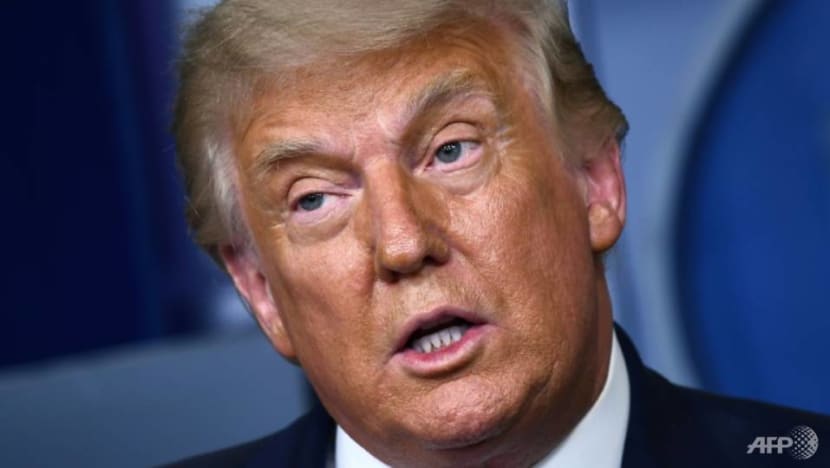
Trump is still the leader of the Republican Party and its kingmaker, as his latest manoeuvring to remove US Representative Liz Cheney from her leadership post in the party demonstrates.
The extension of his suspension from Facebook could catalyse Trump's attempts to launch his own social media platform.
But even without a new platform, Trump may do just fine, with or without his Facebook and Instagram accounts.
Reinstatement would restore his direct lines to the public, which he has used as major channels for fundraising messages, just in time for the 2022 mid-term elections and his own possible 2024 presidential run.
READ: Commentary: We need to talk about how Donald Trump’s presidency wasn’t a complete disaster
Without the accounts, his tools are limited: His new website, email and phone lists, and media interviews.
But this handicap is offset by what he gains from extension of the ban: A rallying cry. He is citing the ban to play the martyr whose free speech rights are crushed by biased Big Tech. He said in a statement:
Free Speech has been taken away from the President of the United States because the Radical Left Lunatics are afraid of the truth.
For the last few news cycles and for months to come, Trump is back where he loves to be, in the spotlight, as supporters and enemies debate the Facebook decision.
THE IMPACT ON FACEBOOK
For Facebook, the decision is a setback. Its attempt to shield itself from scrutiny has backfired.
When Facebook decided to leave up the former US president’s problematic posts in the past — such as coronavirus misinformation, or inflammatory comments about protests following George Floyd’s killing at the hands of Minneapolis police — it faced suspicion.
As the board said, Facebook’s “lack of transparency” about content moderation “appears to contribute to perceptions that the company may be unduly influenced by political or commercial considerations”.
When Facebook suspended Mr Trump’s account over the Capitol Hill insurrection, the convenient timing, coinciding with the waning of Trump’s power, raised questions about the purity of Facebook’s motives.
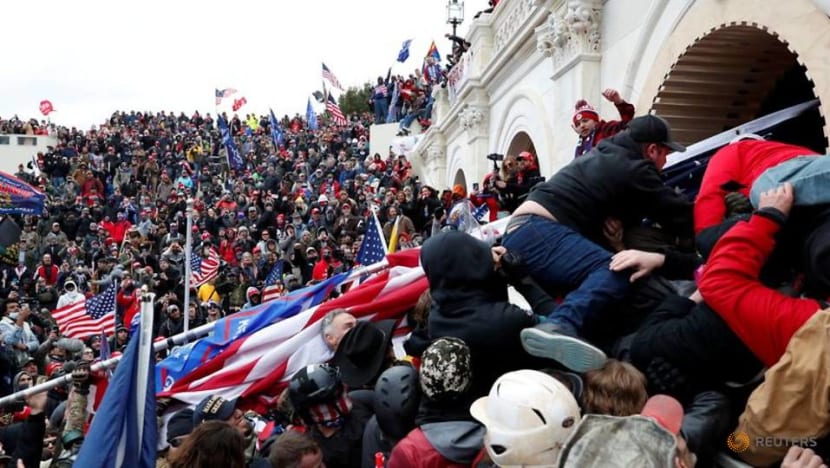
The company had kept the account online, no matter what — until Trump’s re-election bid failed and a Democratic majority had taken control of the Senate.
CEO Mark Zuckerberg had made it clear that ultimately, high-profile content decisions were his. And that rendered him vulnerable to fresh criticism that he was hopelessly beset by a conflict between the public interest and his responsibility as CEO for the company’s bottom line.
After all, Mr Trump’s inflammatory posts drove traffic that supports advertising, and keeping Mr Trump happy might have helped stave off his attempts to retaliate against or regulate the company.
Mr Zuckerberg spoke in 2018 of creating a board “almost like a Supreme Court”. Though the comparison is a stretch, it may belie part of the board’s true purpose for Facebook: To fend off oversight in the form of regulation, which American lawmakers on both sides have clamoured for.
READ: Commentary: Facebook’s eleventh-hour suspension of Trump’s account raises questions about its motives
The board appears to have been designed to lend a veneer of independence and credibility to potentially polarising content decisions like whether to ban Trump.
Yet, at least this time, Facebook failed to find that shield for its decisions it had hoped and paid for.
When Twitter decided on Jan 6 to ban Trump permanently, that was the end of the matter.
Facebook, in comparison, could still be struggling with what to do with Trump’s account for another six months, probably longer if more appeals to the board follow.
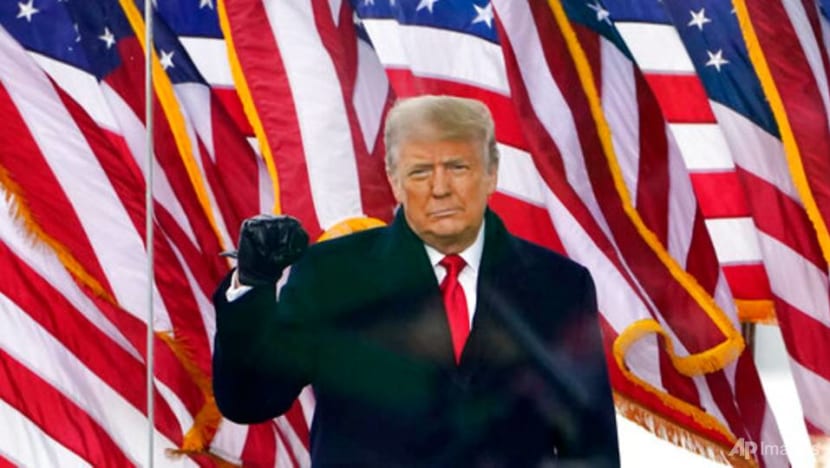
The company’s motives will continue to be subject to second guessing. Trump has already decried the extension of the ban as further evidence of Facebook’s left liberal bias.
Lifting the ban would be read as an attempt to appease conservatives and drive traffic to the site by restoring the account of a figure still revered by his base.
What’s more, the board’s decision has already promoted renewed calls for regulation from Trump’s allies and foes.
THE PUBLIC IMPACT
For social media users and for public discourse, the decision is ultimately a win. At the very least, it is an experiment in new ways to manage controversial social media content.
Sceptics have questioned the board’s independence and lack of power. The board’s charter distinguishes between “policy recommendations”, which are not binding on the company, and “rulings” which are said to be binding — though it’s not clear any consequences would result if the company ignored even the rulings.
“The Oversight Board is not an oversight board, it’s a PR device”, Harvard professor emerita Shoshana Zuboff concluded. This seems overly cynical.
READ: Commentary: Imagine a world with more than one Facebook. Here’s why you can’t
READ: Commentary: The Clubhouse app is a new avenue for political agendas in Thailand
The board has a decent degree of structural autonomy. Its membership now stands at 20, though the Board’s charter prescribes that eventually there will be 40. While Facebook selected the first members, current members choose new ones, and members of the public can make nominations on the board’s website. A law firm oversees the selection.
A panel of five randomly chosen members decides each case, and their identities are concealed in order to insulate them from pressure and protect their safety. Their decision must win support of the board’s majority.
Among members are a former prime minister of Denmark, a Yemeni Nobel Peace Prize laureate, and former editors of The Guardian newspaper and the Jakarta Post.
The board has in early rulings exhibited a track record of independence — that it is more than a rubber stamp for Facebook. In at least half of the ten cases it decided so far, since January, the Board has overruled Facebook’s content moderation decisions.
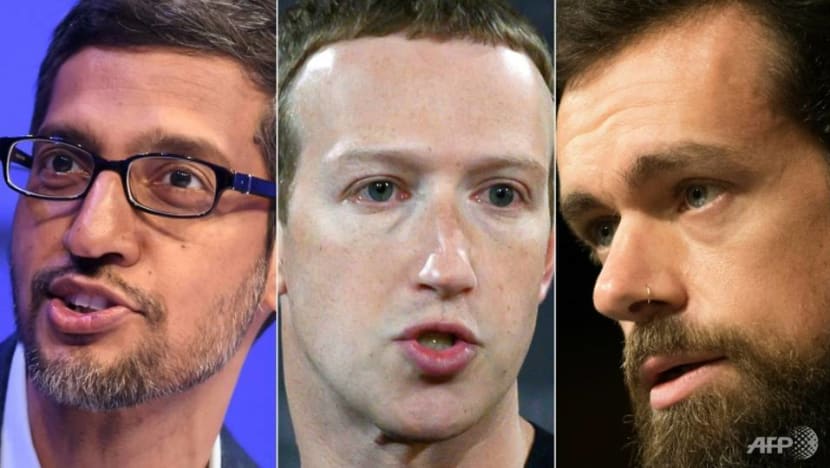
And in its decisions, the board has attempted to curb Facebook’s exercise of discretion and push it toward transparency and clarity in the articulation and application of principles, using the glare of the public spotlight as a motivating force for Facebook to get its act together.
One decision on a French post claiming a drug cocktail could cure COVID-19 asked the platform to clarify “inappropriately vague” rules on misinformation and imminent harm.
In the Trump decision, the board also highlighted that Facebook refused to answer some of the questions it posed, over how its news feed feature impacted the visibility of Trump’s posts and if the company had plans to examine how its technology amplified content.
READ: Commentary: Has corporate influence gone too far in America?
The board could set a new standard for Facebook. Though it failed to provide a resolution on Trump’s account that many of us craved and anticipated, its ruling nudges the company in the direction of accountability and transparency.
If the US Constitution’s First Amendment proves an insurmountable obstacle to legislation over social media content, the board may be the best safeguard that Facebook users will get.
And if clearer social media policies are set, maybe some Americans will see it is Mr Trump who continually flouts norms of acceptable behaviour and tire of him perennially playing the victim.
Dr Mark Cenite is Associate Dean (Undergraduate Education) at Nanyang Technological University’s College of Humanities, Arts, & Social Sciences. He teaches communication law at the Wee Kim Wee School of Communication and Information.















